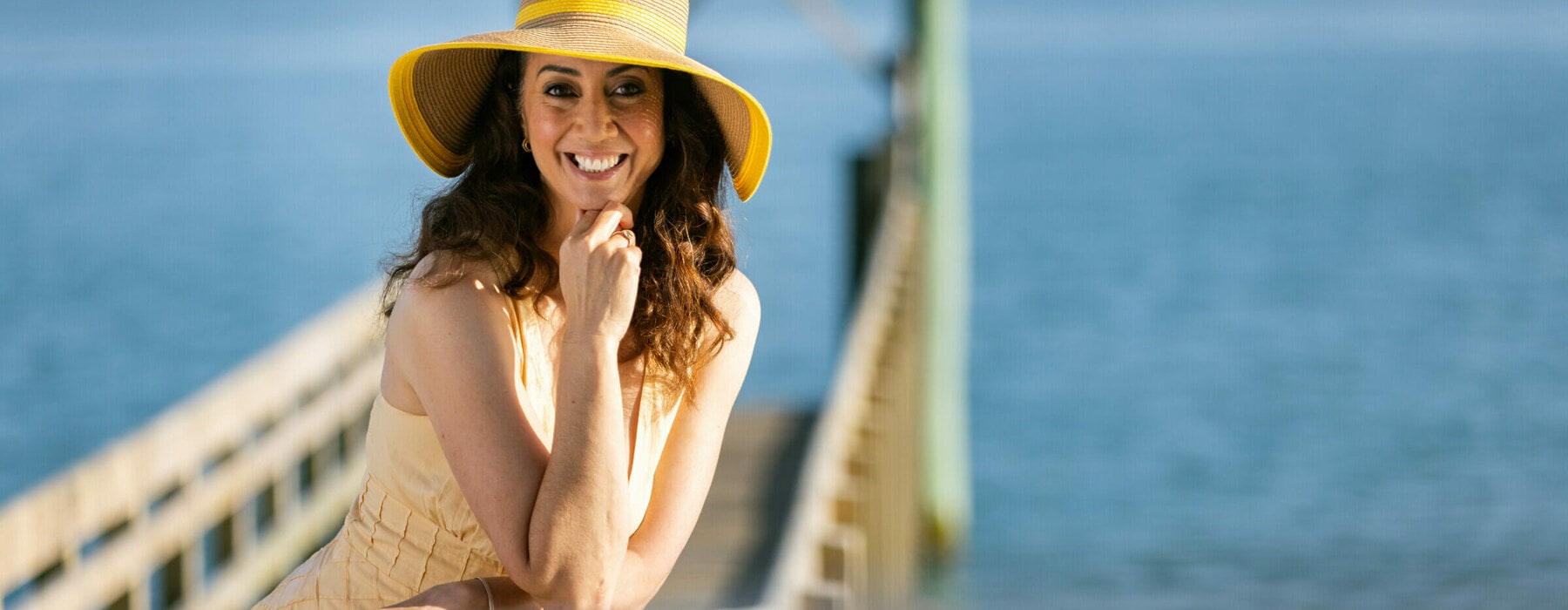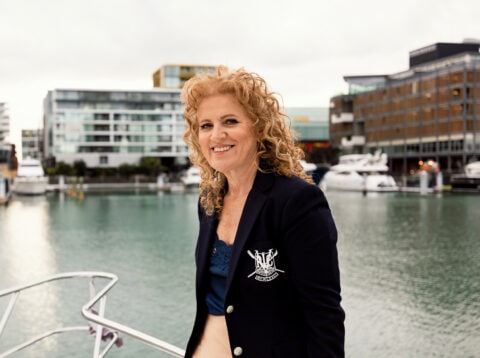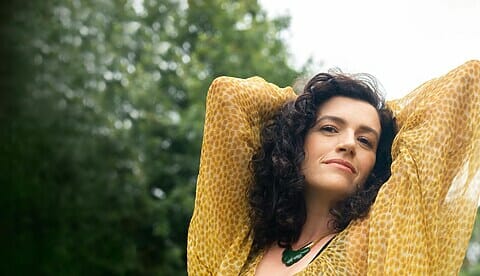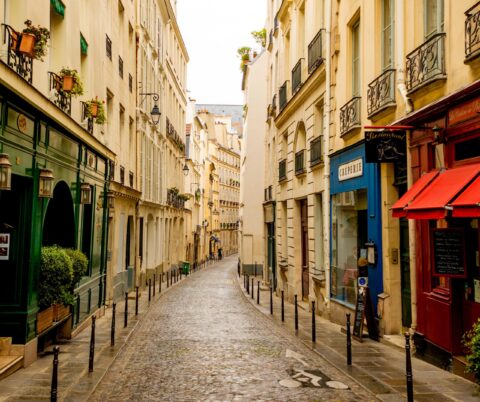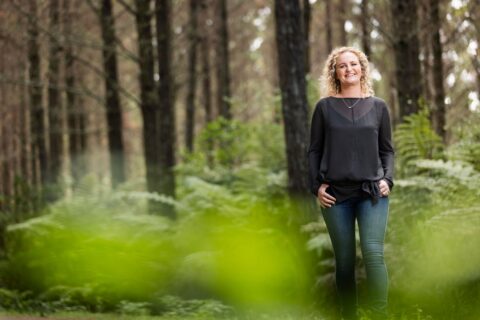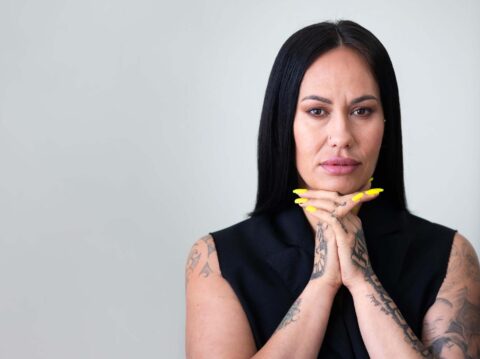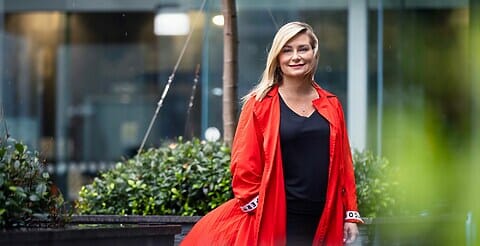It started with a New Year’s resolution, and now broadcaster Miriama Kamo is passionate about sustainable living. She talks to Siena Yates about how going green gave her more respect for the planet.
Miriama Kamo’s home is full of unexpected secrets. Her Auckland abode is every bit as lush as one might expect a well-loved TV presenter’s home to be, but the essence of Miriama is in the details.
The pre-owned furniture with patchworked, fading fabrics, the curtains that aren’t actually curtains but curtain liners, the drawing room in which everything (except for the artwork on the walls) is at least second-hand.
In the hallway, there’s a cupboard full of industrial-sized liquid soaps and cleaning products, presents ready to be re-gifted or repurposed, and recycled toilet paper she buys in bulk. Her pantry is very clearly split in two: one side is stacked with glass jars filled with spices, seeds, cereals and pastas, the other side with a few more plastic packages than she’d like – one side under her control, the other a little more flexible for her husband Mike Dreaver and kids Sam, 20, and Te Rerehua, nine.
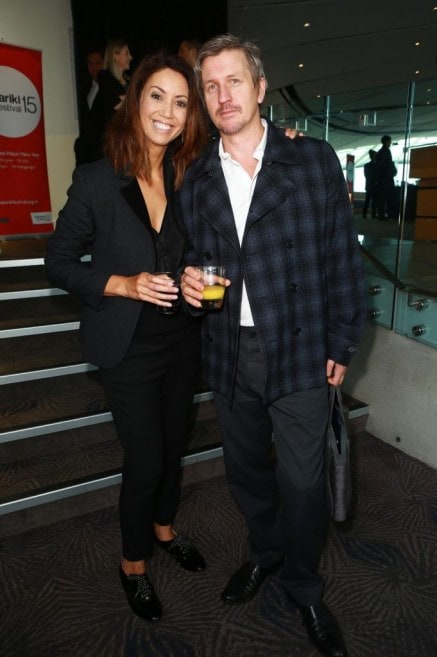
Miriama’s bathroom vanity houses skincare products in glass jars, the cupboards are filled with bulk refill containers and all of her products are eco-friendly and as natural as you can get.
She’s something of an eco-warrior and as close to zero-waste as an individual can be with family members who aren’t quite as on-board – though they are definitely trying to catch up.
“I’ve always been green-minded, for as long as I can remember, actually,” she says. It comes largely from her mother’s influence.
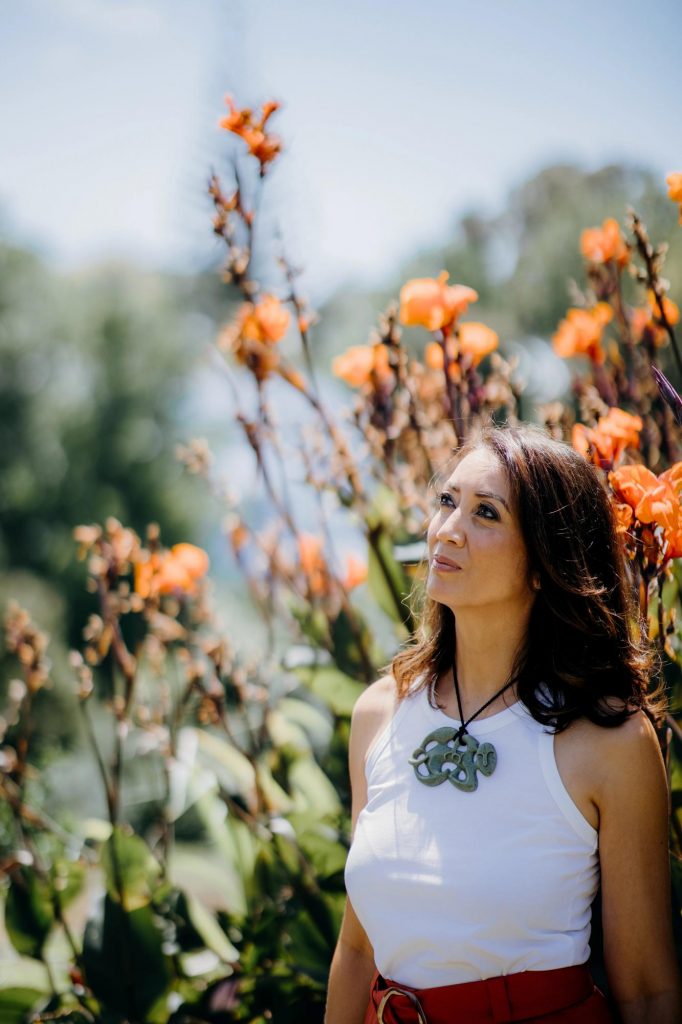
Miriama was born and raised in Christchurch to parents who both worked as prison chaplains, which gave her and her four siblings “an amazing exposure to social justice issues”. It’s a background which has served her well in her long and successful journalism career.
She grew up spending plenty of time on her marae (Rāpaki and Rehua) and her family was part of the Christian Family Movement, which provided a similar sense of community.
“The kids are all like cousins and the parents are all like aunties and uncles, so it was a beautiful upbringing,” she recalls.
And throughout it all, her mother was quietly instilling a sense of environmental responsibility, whether she intended to or not.
“We all would tease her because she just kept absolutely everything. She would always have – and still has – all these little boxes of rubber bands and everything. She won’t throw it out, that’s always been her way. She’s kind of, to me, the zero-waste OG without even realising,” says Miriama.
“She’s a big garage-saler and second-hand buyer. All our clothes were second-hand growing up, which I actually loved because she’d come back with huge bags of clothes and she made a really big effort to figure out what our style was so she would find things that suited each of us.”
What she couldn’t find, she made. Miriama fondly remembers the time her mum fashioned her an on-trend bubble skirt by sewing a maxi skirt in on itself to create the look. Living a zero-waste life is, it seems, just a matter of finding new ways to look at the world.
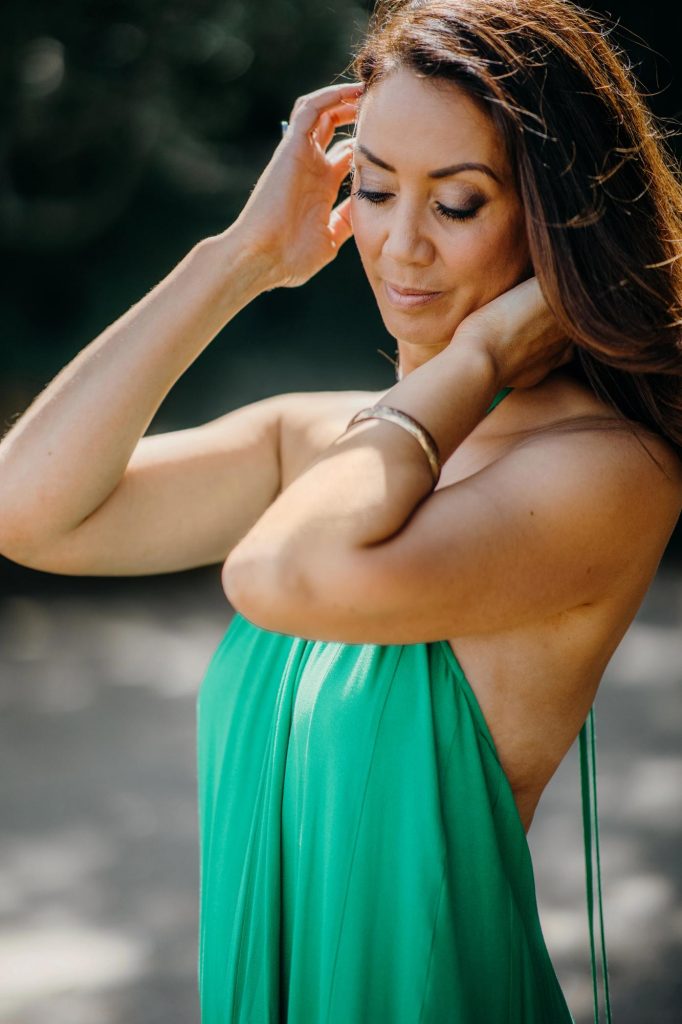
Miriama’s first foray into the zero-waste way of life came about the same way it does for many: as a New Year’s challenge, just for the hell of it.
“I failed immediately,” she says, laughing about it now. At the time though, it was mortifying. On day one of the challenge, Miriama went to the mall with the aim of getting some food with what she calls her “zero-waste kit”: a container, some utensils and even some extra flavouring (this particular time she had a lemon).
She was all set, but then, “I piked out,” she says, putting her face in her palm in embarrassment. “I was so nervous that when the time came I was just like, ‘Nope, I can’t do it.’” The fear of judgement and “funny looks” was all a bit much.
“Then it got even worse. I took my reusable cup to [tea shop] T2 and it was so awful. I opened it so they could put some tea in and it had a little bit of milk in the bottom that had clearly been sitting there for two or three days and hadn’t been cleaned because I’d grabbed it on my way out the door – it was hideous. So yeah, it was just a failure on every single front.”
The turning point came about a week later during a trip to Farro Fresh. “I took my containers in and I was horrified and really embarrassed to do it, but they didn’t blink an eye,” she says. “They didn’t seem to think I was a weirdo, they put it all in [the containers] and they gave me a discount on top, which I didn’t expect at all, so it was one of the best days. I was so excited and over the moon that I had pulled it off finally.”
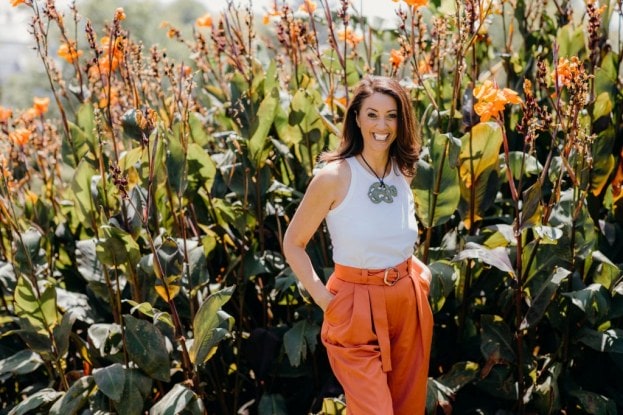
Ever since then, Miriama hasn’t given shame or embarrassment another thought. In fact, she proudly posts about her zero-waste endeavours in detail on social media, including, most recently, video tours of the same cupboards she showed the Woman team when we visited her home.
Promoting the zero-waste life has become one of the many strings to Miriama’s already full bow. She’s known for fronting hard-hitting current affairs shows like 20/20, Marae and, of course, Sunday, but what we don’t see is what happens behind the scenes.
Not only does Miriama write for TVNZ’s Sunday, she occasionally pens news articles, is a patron of New Zealander of the Year, a trustee of Kōtahi Rau Pukapuka, which is translating 100 books into te reo Māori, and is an ambassador for Pillars and Endometriosis NZ. She’s also writing three books this year alone, as well as dipping her toe in the waters of screenwriting, which is her next big dream.
She’s already living her first dream – one that was sparked when she was just a teen after she caught a passing glimpse of journalist Janet Wilson in an airport.
“She was walking through an airport with her camera guy, her producer and in those days they had soundies, and she was on a mission. She was going somewhere; they were all going somewhere. They were a team and they looked exciting to me. And I was just thinking, ‘Wow, where are they going? What are they going to do?’ Because I loved writing and telling stories, at some point it just all came together.”
After television journalism, the next dream was directing, which, Miriama says, “I think is still in me, but it’s not something that I feel a great urge to make happen right now.” Screenwriting is where her sights are set instead.
“I would love to actually write a drama,” she says. Until then, writing for Sunday and working on multiple books in a year ought to be more than enough to keep her busy. Especially on top of whatever speaking engagements and other opportunities pop up, as well as being a wife and mum.
“I’ve got a bad habit of saying, ‘Yeah, I can do that, I can do this.’ Sure, you can do anything if you’re willing to sacrifice other things, you know? But this year, I need to peel back some of the extra things I’ve been doing to spend more time with Te Rerehua. I’ve said to her that this is the ‘Year of Te Rerehua’, so we need to make sure that it is.”
When I comment on how busy Māori women tend to be, she agrees and applauds that, but also has a word of warning.
“The busiest and most incredibly accomplished women I know, on the whole, are Māori women. We’re an amazing bunch of people; Māori women are sort of just brimming with talent. But the thing I would say is to manage your energy, because the older you get, the more things come and the more you want to do and the more you manage and the less time you have for yourself. Although it’s a huge honour to take on more and more different projects and things, it’s also a big burden on women, particularly when we’re dealing with hormones and all the other obligations that come with being a woman.”
Those other things have weighed heavily on Miriama over the years.
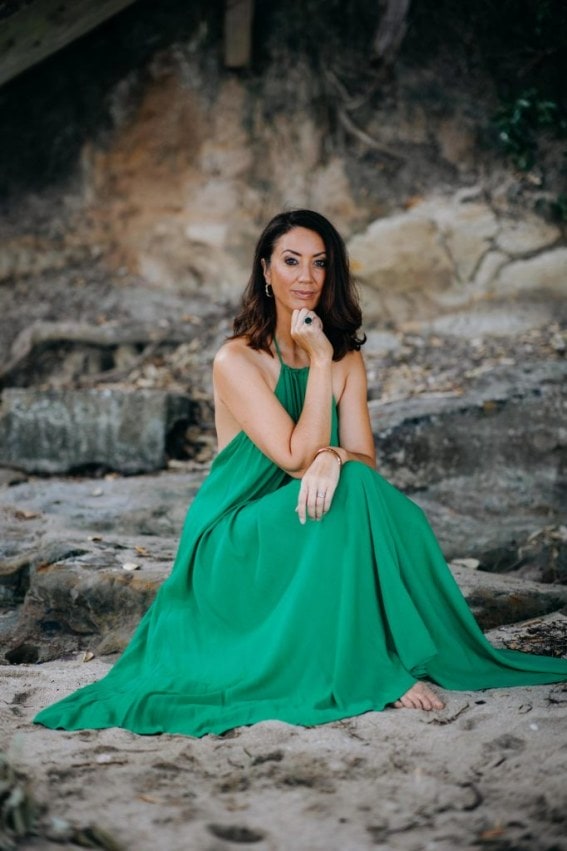
A sufferer of endometriosis, she’s lost six pregnancies, having her last pregnancy at 42 years old. After that, she went through an early menopause and now, at 47, is post menopausal and says “dealing with the fluctuating hormones is a huge mission”.
But she’s using it as a teaching opportunity for her daughter, with whom she’s very open.
“I talked to her about periods. I didn’t make any secret of it. I remember when she first saw me changing a pad, she was like, ‘Oh Mama, what’s wrong?’ And I was like, ‘It’s just my period, darling, and one day you’ll have your period.’ So it was really great, because I was able to open up that conversation with her.”
Miriama’s also been open about her menopausal symptoms and hormone replacement therapy patches, simply explaining what happens and why.
“I want her to know everything. I think it’s a shame that any girl or woman should feel they have to talk quietly, whisper, giggle, feel embarrassed or ashamed – any of those emotions around what is such a natural thing and, frankly, is the reason we’re all here. Why would we feel embarrassed about that? The thing I would say about fertility issues is that they are sacred, but they’re not taboo.
“We’ve always been open with our boy as well. It’d be nice if society didn’t blink about these things and that men and boys understood what their women were going through.” In the end, so much of life for Miriama comes down to connecting with, understanding, respecting and celebrating nature.
That approach has helped her raise her children, helped her find joy in a lifestyle that started out as a New Year challenge and helped her deal with her own health issues. It also directly improved her health when she was issued another challenge – this time a dare from her daughter to eat a plant-based diet for a month. At first it was just a bit of fun, but after just one week, Miriama noticed the lower-back pain she’s suffered from for years – which she describes as “broken-glass back pain” – was practically gone.
Between that and the environmental impacts of not eating meat and consuming all the packaging that often comes with it, Miriama was sold and still eats a largely plant-based diet today, months after Te Rerehua’s dare expired.
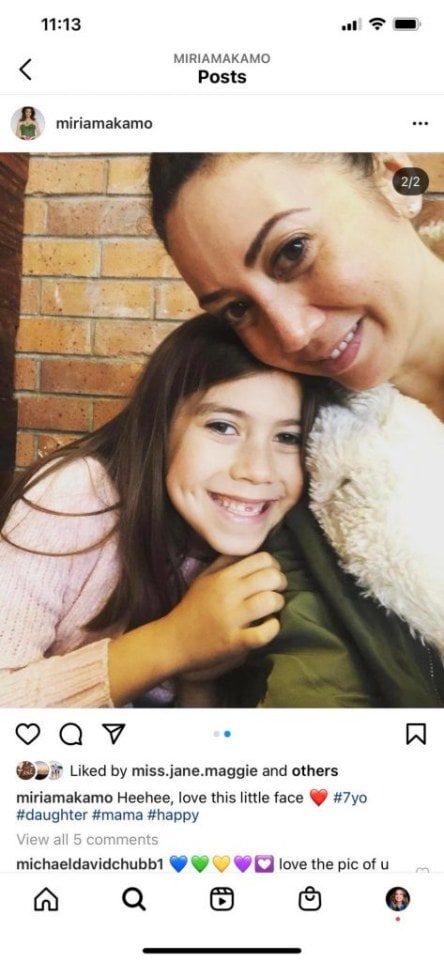
In much the same way, sticking with her zero-waste journey has been a natural progression. It was no longer the chore or challenge it started out as; it really, truly worked for her in a way even she never expected.
“I stuck with zero-waste because I found so much joy in it and that was the last thing I expected to find,” she says. “I really just thought I’d feel good about myself – maybe a bit superior – and then I would give it up after a month. But it was the biggest surprise in the world to me that I felt really joyful during that month, and felt really connected to the earth and to other people.”
And that connection changed her life forever. It even fixed her fear of creepy-crawlies because it taught her that “everything living has its place and value on the planet”.
Everything living has its place and value on the planet.
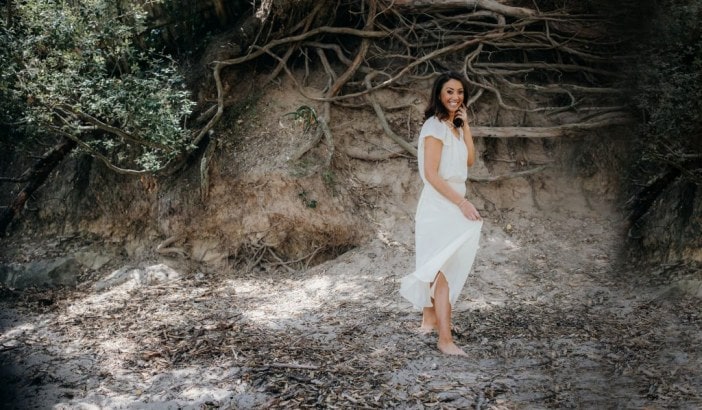
“Shaking up your existence is a good thing to do now and again, and this was quite a fundamental, profound shift in the way that I viewed the world. I found real joy in kind of schmaltzy things like the sunset, and suddenly understood why people like to hug trees – I felt really connected to the power of the planet. It’s that basic connection to what really matters and it’s a vehicle for bringing meaning into your life.”
I found real joy in kind of schmaltzy things like the sunset, and suddenly understood why people like to hug trees.

